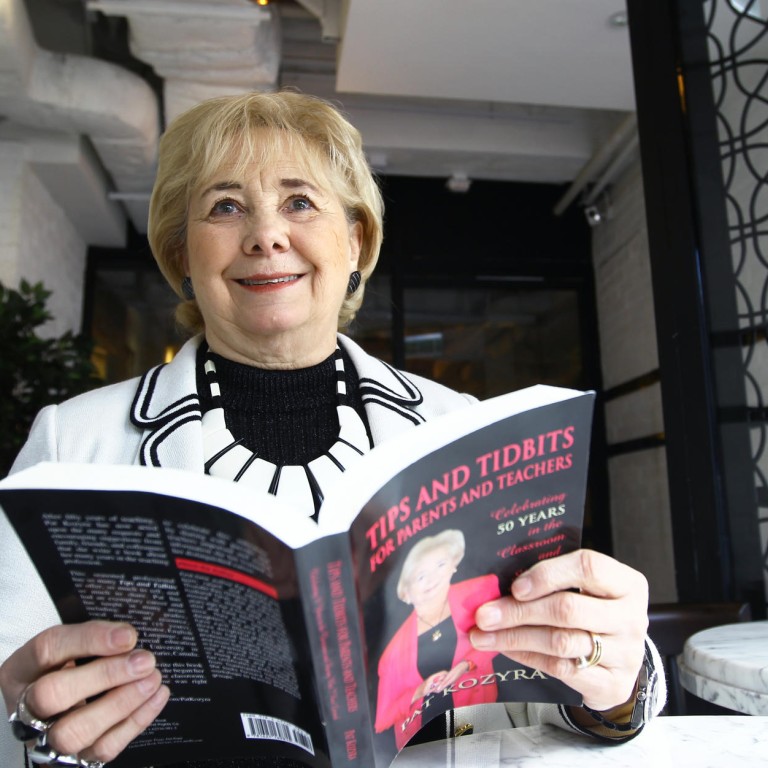
Hong Kong babies 'being sent to tutors at the age of 15 months'
Veteran teacher warns of pressure on children as parents ask for lessons for toddlers and older pupils take 12 or more tutorials a week
Hong Kong children are being put under more pressure at younger ages by their parents, with youngsters being forced to take a dozen tutoring classes every week and some parents seeking tutors for their toddlers, the author of a new book on parenting and teaching says.
The heavy workload at such a young age could be behind a range of problems suffered by a growing number of, children such as a "chronic lack of sleep" and attention disorders. So says retired teacher Pat Kozyra, who wrote the book after spending more than half a century working in the education field.
Now a private tutor for kindergarten and primary-level children, Kozyra told the that a number of parents had asked her to practice conversation with children as young as 15 months old. Some pupils told her they had to take as many as 12 to 15 tutorials every week.
"The amount of regular good sleep is so important for a child but this doesn't seem to be happening as much as it should here in Hong Kong," said Kozyra, who came to the city in 2001 from Canada and taught in two international schools until she retired in June last year.
"I'm also observing more pupils with physical tics now than ever before. [Such tics] can be a sign of too much stress.
"Are we forcing these children to learn too much too fast? And what's happening to play?"
Kozyra has dedicated a whole chapter in her book, , to the developmental benefits of playing with simple toys such as balls - a toy she says "never goes out of style" but is often ignored by parents in favour of more expensive ones.
Parents are worrying more about their children's ability to get into a good school, while schools are also raising the bar for acceptance, Kozyra said. Many schools now require candidates to be reading fluently at a very young age when, in other parts of the world, children may not be able to read at all. She cited Finland, where children do not start reading until the age of seven but develop into the best readers in the world.
The love of reading, according to Kozyra, is key to a child's academic and personal development, but it cannot be tutored and needs to be encouraged by parents' own activities. She suggested that parents spend some "quality time" every day with their children and read to them.
"I often hear experts say that you shouldn't stop reading to your children until they're in university. You can laugh at it but this is what the experts say. Most children just love to hear mummy or daddy read," she said.
In many cases in Hong Kong, domestic helpers spend as much time with children as the parents do, if not more, which is why Kozyra also emphasised the importance of incorporating maids into children's upbringing. She said parents should maintain good communication with helpers and ask them to report the children's misbehaviour, instead of ignoring it or even blaming the maids for reporting it.
"Note that your own attitude toward your helper will be reflected in your children," she said.
She has seen children hitting, kicking and spitting at their helpers. She called it a "vicious circle", as children are often spoiled by the helpers simply so they will not upset their employers.
Kozyra also warned against parents agreeing to everything that their children want in order to compensate for the time they spend apart.
"That's guilt," she said.

